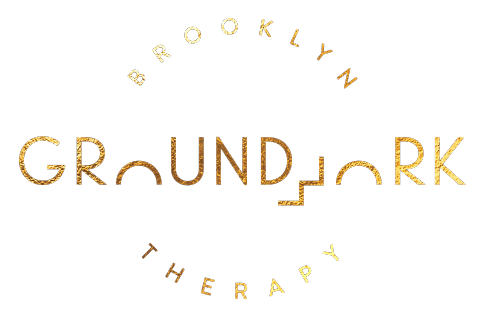Letting Go of the Past Year: How Therapy Can Help You Process and Move Forward
The New Year is a chance for fresh starts, but sometimes the weight of the past makes it hard to move forward. Maybe it’s unresolved emotions, lingering regrets, or the struggles from last year holding you back. Letting go doesn’t mean forgetting—it’s about learning, growing, and making room for a brighter, more balanced future. Reflecting on the past year and reaching out for support can help you find closure and step into 2025 with confidence.
The Impact of Focusing on the Past
Dwelling on the past, or rumination, is closely linked to increased symptoms of depression and anxiety. Research shows that individuals who ruminate frequently experience heightened levels of emotional distress, as this thought pattern amplifies negative emotions rather than resolving them (Nolen-Hoeksema, Wisco, & Lyubomirsky, 2014).
The effects of unresolved issues extend beyond emotional well-being. Relationships can suffer when past experiences shape present interactions, often leading to misunderstandings or unnecessary conflict. Productivity may also decline as focus shifts from current tasks to reliving past mistakes or perceived failures. Over time, this cycle can impact self-esteem, reinforcing feelings of helplessness or inadequacy. Recognizing the emotional toll of focusing on the past is the first step toward breaking free from these patterns.
How Therapy Can Help You Stop Ruminating on the Past
Therapy offers a structured and supportive environment to address the cycle of rumination and its impact on your mental health. By working with a trained therapist, you can gain insights into the root causes of these thought patterns, learn strategies to redirect your focus, and develop healthier ways to process past experiences. Therapy isn’t about erasing the past—it’s about finding meaning, closure, and the tools to move forward with confidence and clarity.
1. Identifying Triggers and Patterns
A therapist can help you identify the specific events or thoughts that trigger rumination. Understanding these patterns is the first step toward breaking the cycle. With awareness, you can recognize when you’re slipping into unproductive thinking and take steps to redirect your focus.
2. Reframing Negative Thoughts
Cognitive-behavioral therapy (CBT) is particularly effective for addressing rumination. It teaches you how to challenge and reframe negative thoughts, shifting them into a more balanced and constructive perspective. This process helps reduce the emotional intensity of past events, making them easier to process.
3. Practicing Mindfulness and Grounding Techniques
Therapists often introduce mindfulness exercises to help you stay present and reduce fixation on the past. Techniques like deep breathing, meditation, or grounding exercises can interrupt rumination and bring your attention back to the here and now.
4. Building Emotional Resilience
Through therapy, you can develop tools to manage emotional distress better. Learning coping strategies equips you to handle challenges without falling into a cycle of rumination. Over time, these skills foster emotional resilience and a greater sense of control over your thoughts and feelings.
5. Finding Closure and Acceptance
Therapy provides a safe space to explore unresolved feelings and find closure. By healthily processing emotions, you can release the grip of the past and create emotional space for growth. Acceptance doesn’t mean forgetting—it means making peace with what has happened and focusing on the future.
With the guidance and support of a therapist, you can break free from the exhausting cycle of rumination, where negative thoughts play on repeat and hold you back from fully living your life. Therapy provides a safe and non-judgmental space to explore these patterns, understand their root causes, and develop healthier, more constructive ways of thinking.
Embracing Growth and Renewal in 2025
Letting go of the past is a powerful way to create space for personal growth and emotional resilience. Working with a therapist can help you process unresolved feelings, break free from cycles of rumination, and develop healthier ways to approach the future. Therapy offers the tools and support needed to embrace new opportunities with clarity and confidence, making it an invaluable resource as you move into 2025.
If you’re searching for a therapist in Brooklyn, NY, Groundwork Therapy is here to support you. We provide a compassionate, judgment-free space to help you navigate life’s challenges and create a path toward a brighter, more balanced future. Contact us today to take the first step toward renewal and healing in the New Year.
References:
Nolen-Hoeksema, S., Wisco, B. E., & Lyubomirsky, S. (2014). Rethinking rumination. Perspectives on Psychological Science, 3(5), 400–424. https://pmc.ncbi.nlm.nih.gov/articles/PMC4116082/


